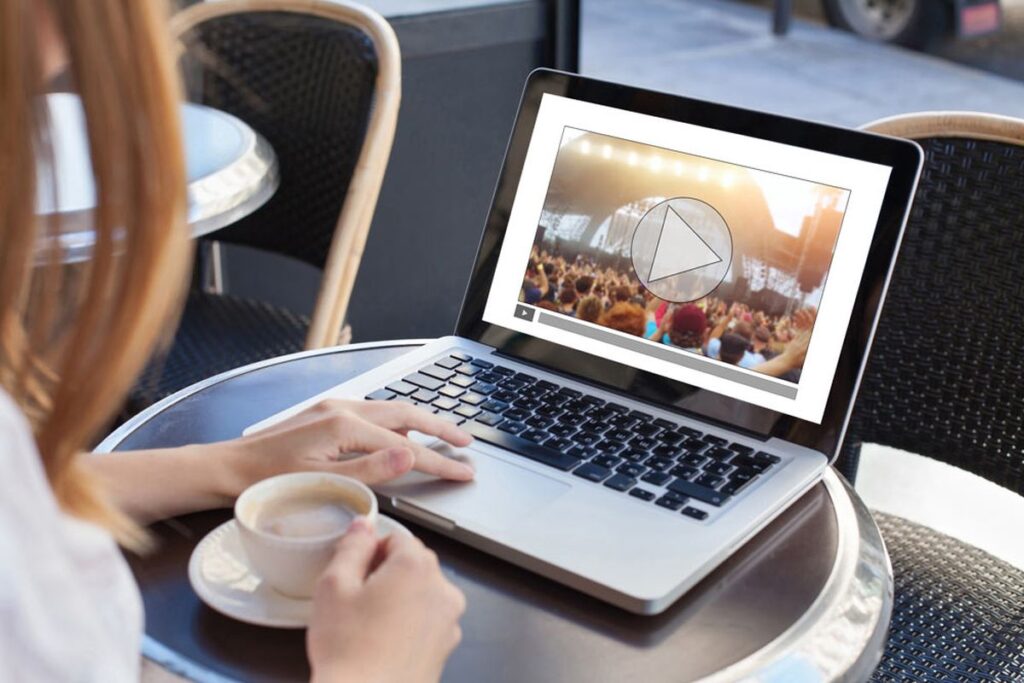Corona pandemic has injected more life into the online space. The online activities are more than ever before as people are now holding events like weddings, conferences, or even memorials virtually.
A common mistake planners make when setting up a virtual event is less preparation. Virtual events reach larger audiences compared to physical ones, hence the need to increase the standards. If you are planning for a virtual event, then you need more preparation than before.
Tips to Prepare for a Virtual Event

Treat it like a real event
Online events should feel like a live one; otherwise, it may end up with a detached audience who feel like they are following a TV program. To achieve this, you need to have materials like keynote presentations, many concurrent tracks, and breakout sessions, if possible. Just like in-person, you need to prepare presentations diligently.
When you have photos or videos that you need to present or use in the event source for a digitized slideshow to ensure your content will play in the gadgets available. A seasoned professional also provides that the output is in high resolution with the best clarity possible.
Advertise
There are many activities online fighting to get the attention of the many internet users. Using social media to advertise for upcoming events has proven fruitful over time. Use all platforms possible to create awareness and invite participants.

Make it social and fun
Social and fun are crucial aspects that many people holding events online miss. If you are planning a wedding, make it as interactive as possible. Encourage attendees to feel like they are attending in person and not just watching presentations passively.
Radical things like playing a slideshow of a bride or groom’s childhood photos are fun stuff people appreciate.
Create time to have attendees get to know each other beyond the names. In case you are using mediums like Zoom with a video option, encourage members to turn on the video so that people can put a name to the face.
Fun activities generate energy in the audience, bring humor, and increase the attendees’ participation.
Prizes and contests get people to interact with other attendees. Consider engaging the participants in trivia or photo-matching contest.
You can also have a theme in advance and send it to everyone so that whoever stands out wins a prize.

Prepare moderators and presenter in advance
With online events, you cannot compromise on the level of message delivery and content. Source for engaging and well-trained presenters and moderators who are fun and will remain relevant throughout the sessions.
Prepping the moderators and presenters is crucial to ensure that you are all on the same page. Allow enough time for the team to practice. Moderators should have sample scripts to make the session seamless. A few weeks to the event, carry out participants’ orientation, and communicate the tips and reminders.
Keep the event organized and easy to navigate
Most people have been thrown into the online space with no orientation. Online events should be hosted on user-friendly platforms that are easy for everyone to access and operate.
Post a reminder of the upcoming event on a relevant social media platform and the official website. The poster should provide information on how to register, theme, sponsors, and other appropriate direction.

Pay attention to the little Things – they Count
Any virtual event needs meticulous planning to be a success. Some of the seemingly minor concerns make a world of difference. Time zones, for example, may affect participants who are in different regions. Try and engage your target audience in advance and poll them to get the most suitable time for the majority. Consider recording the happenings for the people who will miss and also future reference. Get a favorable and appealing venue for the event. Depending on the nature of the function, ensure the décor and background is in sync.
Sound and lighting
Sound quality plays a massive role in a virtual event. A feedback echo is the last thing you wish to hear. Use the microphone headset whenever possible. It helps to test the microphones in advance and ensure sound clarity. Always remind the attendees to mute themselves during the event to avoid interruptions.
Presenters should always be visible by the audience, hence encourage them to keep their webcam on. If it is a wedding, ensure the bride and groom are visible as they connect to their guests. Whenever you are recording videos, use good lighting.
Virtual events will consume enough planning time as an in-person event. However, running an online conference or wedding is much lower as there are no overhead costs. Once recorded, Classic Memories offer a DVD duplication process to ensure every participant receives a copy of the recorded event.

Digitize your media
There are many benefits of digitizing your media, and one of them is that you can play the content on various platforms. Another advantage of having your media digitized is that the photo and videos become easily sharable. Once digitized, the content can be edited and customized to appeal to the target audience.
Test, Test, Test
Doing a re-run before the actual event is a great way to prepare for an event. A dress rehearsal on the venue before the actual event will help you see things from the audience lenses and improve the main show.
Experts today use sophisticated and latest digital transfers to store content. If you plan for a presentation, play the material a few days to the main even and test compatibility as you confirm the content. Have back up for the data in devices and cloud storage.
Conclusion
Digital media is now the new normal and is likely to remain so for some time. When planning for virtual events, reach your audience through digitized media. Get a professional to ensure that the content is engaging, captivating, and relevant. Investing in preparation makes the difference between a well-executed virtual event and a flop.

